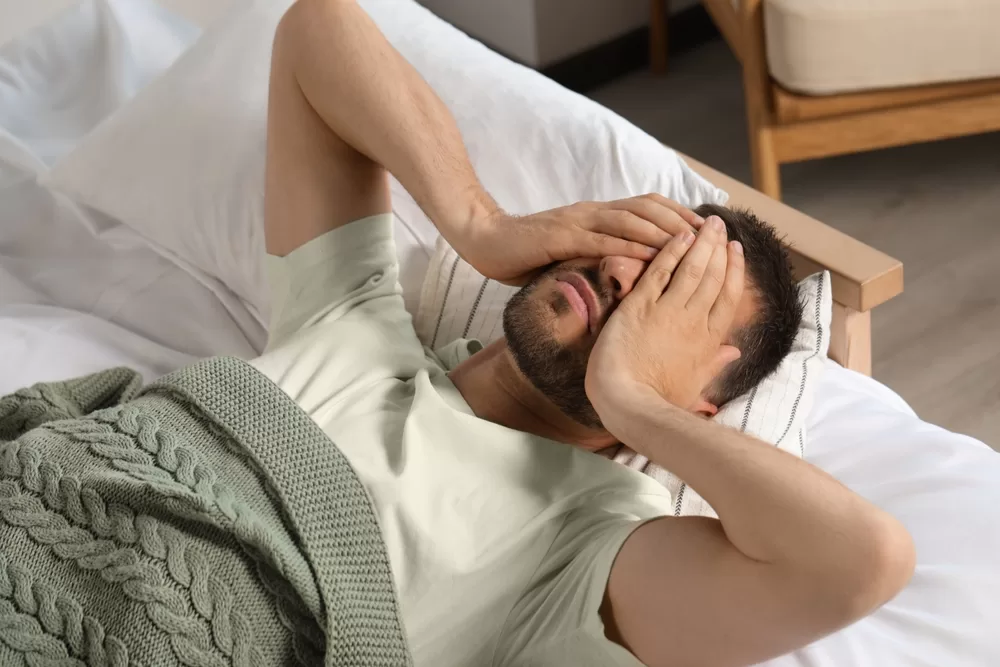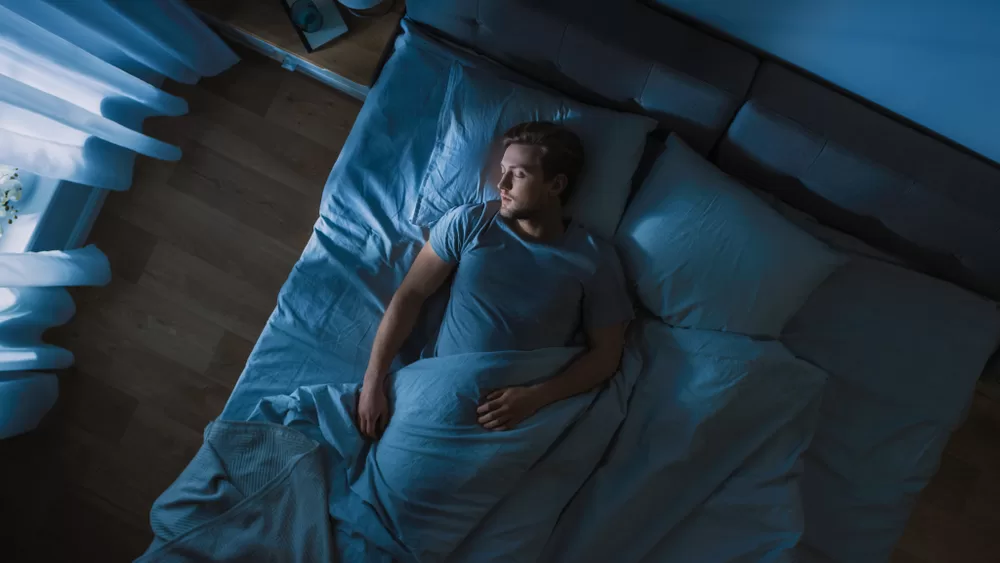The Science of Restless Sleep – Understanding the Causes and Solutions
06/06/2023

Tossing and turning throughout the night can be incredibly frustrating. You want to sleep, but no matter what you do, you just can’t keep your eyes closed. Unfortunately, poor sleep quality isn’t just frustrating; it can seriously impact your mental and physical health. If you want to understand more about the causes of your restless sleep, you have come to the right place.
Not only are we going to go over the causes and negative consequences of restless sleep, but we are also going to offer you some viable and proven solutions. It’s time to get serious about getting better sleep. Get the rest your mind and body need, and say goodbye to excessive daytime sleepiness, so you can wake up refreshed and ready to tackle the day’s challenges.
What Are the Impacts of Poor Sleep Quality?
Poor sleep quality and duration can seriously impact your mental and physical health. They can lead to fatigue, mood swings, poor concentration, loss of physical health, longer recovery times for injuries, and a higher susceptibility to physical and mental health issues.
When you don’t get enough high-quality sleep, your body cannot recover properly. Your immune system becomes compromised, and you will not have the right energy levels to take on the day. Basically, overcoming restless sleep and prioritizing sleep quality and duration are essential to be the best version of yourself.
What Are the Causes of Restless Sleep?

Too many men pass restless sleep off as some irritating quirk rather than recognizing and addressing the causes. While certain medical conditions can impact your ability to fall asleep at night, for most men, the causes of restless sleep are linked to their lifestyle and environment. Luckily, this also means you can address the underlying causes.
The following tend to be the leading causes of restless sleep for most men:
Anxiety & Stress
It might not come as a surprise to learn that ongoing stress and anxiety can make it difficult for a man to fall asleep at night. If negative thoughts and worries keep your mind occupied, you won’t be able to get the sleep you need at night.
While having your mind race with anxious and stressful thoughts certainly doesn’t help, there’s a scientific explanation for why stress and anxiety are intrinsically linked to sleep issues. According to the National Sleep Foundation, high stress and anxiety levels trigger your body’s “fight or flight” response. When this occurs, the body releases a hormone called cortisol, which suppresses sleep-related hormones like melatonin.
Cortisol also increases your heart rate and mental alertness. It does the opposite of relaxing your body and mind, so falling asleep becomes incredibly difficult. To put a stop to restless sleep and insomnia, you need to get your anxiety and stress under control.
Poor Lifestyle & Sleep Habits
Like anything else, your habits will impact how easy it is to fall asleep and stay asleep. Creating and sticking to a better sleep schedule will help you improve your sleep quality. Try to have a consistent bedtime while avoiding negative habits that can impact your sleep quality.
For example, consuming caffeine late in the day can make it difficult to fall asleep. The same can be said for overconsumption of alcohol. Staring at bright screens before bed can also suppress the production of sleep hormones by tricking your body into thinking it is still the middle of the day.
An Environment Poorly Designed for Restful Sleep
Where you sleep can also have a significant impact on sleep quality. Is your bedroom too bright, loud, and uncomfortable? Are you trying to sleep on a low-quality mattress in a room that is too hot or cold?
Put effort into addressing the environmental factors making it difficult to sleep. Blackout curtains, earplugs, a supportive mattress, a portable air conditioner, and even new sheets can help your body fall and stay asleep.
If, on the other hand, your restless sleep is linked to a medical condition, you need to speak with a doctor. You may need a sleep study to determine if your excessive sleepiness and other sleep issues are due to underlying sleep disorders, neurological disorders, or a condition like obstructive sleep apnea or restless leg syndrome. They may be able to prescribe sleep medicine and even medical equipment that can help improve your sleep quality and duration.
What Are the Solutions to Restless Sleep?

Now that you know a little bit more about the causes of poor sleep quality, it’s time to take a look at ways you can address the issue.
1. Improve Your Sleep Habits & Sleep Environment
We discussed the importance of developing and sticking to a sleep schedule and healthy sleep habits. Go to bed on time in a comfortable space without distraction. Consistency is key, as you want to help your body develop a routine that will encourage your body to begin preparing for sleep before your head hits the pillow. At least a few hours before you head to bed, avoid bright screens, stressful activities, caffeine, alcohol, and anything else that can keep you awake.
Improve your sleep environment by making sure your bedroom is comfortable, cool, and dark. Invest in better pillows and a supportive mattress. Trust us; it will pay off.
2. Get Your Stress & Anxiety Under Control
Stress and anxiety happen, but how you address the issue can significantly impact your sleep quality. Practice stress-reducing relaxation techniques like yoga, meditation, mindfulness, and deep breathing to help you avoid sleep problems.
It’s also important to avoid stressors before bed. Focus on clearing your head before sleep rather than triggering stress and anxiety. Avoid everything that raises your stress levels before bed, including checking banking details or work emails.
3. Exercise & Eat Well
Physical exercise during the day and prioritizing a healthy, well-balanced diet can do wonders for your sleep quality. When you treat your body right, it is much easier to fall asleep at night.
Not only are exercise and proper nutrition essential for your overall health, but they can also help you address some of the stress and anxiety that is causing your sleep disturbance issues.
4. Consider Taking Natural Sleep Supplements
Rather than relying on sleep medicine, which can do more harm than good if you do not have a diagnosed sleep disorder, especially in the long run, start taking sleep supplements made from natural ingredients that can help improve your sleep quality and duration.

Lights Out Nighttime Sleep Aid was formulated to help men enjoy more restful sleep. All-natural ingredients, like L-tryptophan, melatonin, piperine, and valerian, help bring on fast, deep sleep. This supplement blend can help you wake up with refreshed mental clarity, so you can tackle whatever challenges the day throws at you.
Final Words
Don’t allow yourself to overlook the importance of healthy sleep. How well you sleep is essential for your overall health and well-being. Address the causes of your restless sleep like you would any other challenge in your life.
Your sleep problems do not have to be ongoing. Improve your sleep, and it can improve your overall quality of life.
For more information about poor focus and other sleep-related concentration issues, we recommend reading Can’t Focus at Work? – Here is What You Can Do.

 Back to Blog
Back to Blog